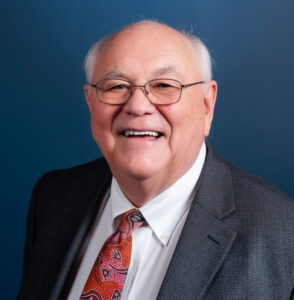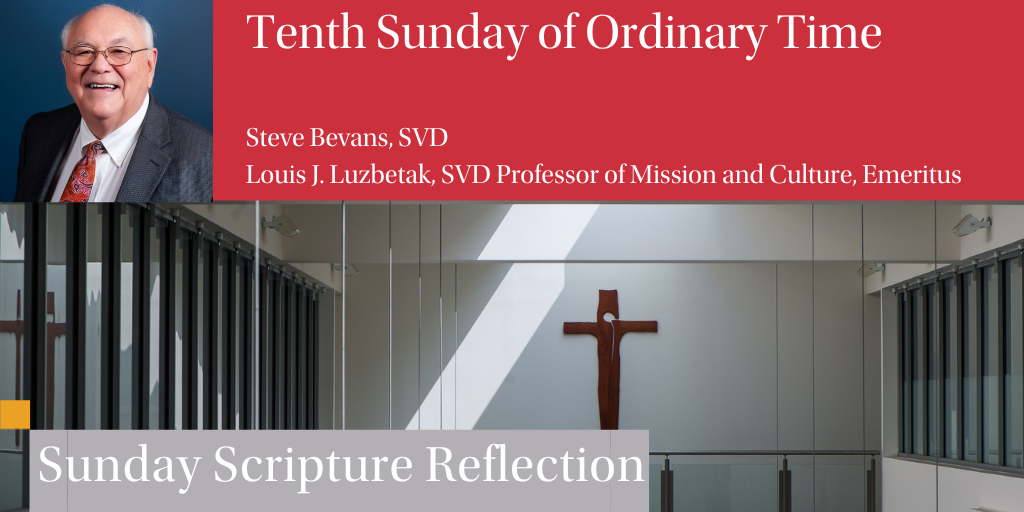
Readings:
Psalm: Ps 130:1-2, 3-4, 5-6, 7-8
2 Corintians: 2 Cor 4:13—5:1
Gospel: Mk 3:20-35
Our scripture readings today seem to go in several directions, but perhaps common among them is an assurance that, while the power of sin and evil is very real in our lives, God’s grace in Christ is greater than any such power.
Grace has been bestowed on us in abundance, our second reading proclaims, and so even in the face of death we should not be discouraged.
After listening to the origin of sin in the world as recounted in Genesis, the psalm response acknowledges human guilt, but rejoices in the fact that with our God is kindness and fullness of redemption.
Jesus the Christ is the great exorcist, overthrowing evil by the power of God. We are, through faith in him, his brothers and sisters. We share in the fullness of God’s mercy and are called to be merciful and forgiving ourselves.
There is nothing—nothing!—that we can do to alienate us from the healing and liberating power of God’s love. There is no crime that we can commit, no blasphemy we can utter, no evil we can cause or take part in, no sinful situation we can be caught in or addicted to that is beyond God’s mercy. “If you mark iniquities, O Lord who can stand. But with you is forgiveness that you may be revered.”
Every sin, Jesus says, can be forgiven. But he makes an exception. The only that cannot be forgiven is the sin of blasphemy “against the Holy Spirit.”
What might that mean? Is Jesus reneging on his own teaching? Is there actually something that God won’t or can’t forgive?
Only one. My own sense is that such a sin is the sin of not allowing oneself to be forgiven. God is always offering mercy. The Holy Spirit is always whispering words of love and forgiveness within our hearts. But if we don’t listen, if we don’t accept God’s forgiveness, not even God’s omnipotence can bring about forgiveness. Forgiveness doesn’t depend on God. God is an ever-glowing fountain of mercy. It depends on us to freely receive it, and God cannot impinge on our freedom.
A story that I heard about one of my SVD friends illustrates this powerfully, My friend was serving as a prison chaplain, and part of his ministry was to visit the inmates on death row. There was a prisoner there, the perpetrator of a very heinous and famous crime that had killed many men, women, and especially children. When my friend first visited him, the prisoner shouted profanities at him and told my friend in no uncertain terms to leave him alone. One time he even threw excrement at my friend, telling him that he wanted nothing to do with him and his God.
But my friend kept coming back, even in the face of this abuse, and one day the real reason for the man’s rage came out. Could God ever forgive him for the horrible thing he had done?, he asked my friend despairingly. Was there any hope of pardon and forgiveness and peace?
That was the beginning of his conversion, and he eventually opened up to the forgiveness that had been continually offered him. In the state in which he was imprisoned the barbarous practice of the death penalty was still legal, and so the man was executed. There was no doubt of his guilt. But he died a peaceful and forgiven man.
Even this criminal could be forgiven, even despite his horrendous crime. For some of us, this might be a hard thing to take. In many ways it’s hard for me to take! It’s crazy! Like Jesus’ family, we might think that such forgiveness goes too far. But God’s logic is different from ours. God’s is a “crazy love,” as a fourteenth century mystic put it.
But like God’s weakness is true strength, so God’s “insanity” is true sanity. It is the sanity of going after one lost sheep, tearing a house apart to find one lost coin, shedding one’s dignity to welcome home a wayward son. It is the sanity of mercy. The sanity of love.
“If you, O Lord, mark iniquities, Lord, who can stand? But with you is forgiveness, that you may be revered.”
Steve Bevans, SVD
Louis J. Luzbetak, SVD Professor of Mission and Culture, Emeritus
